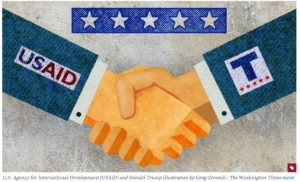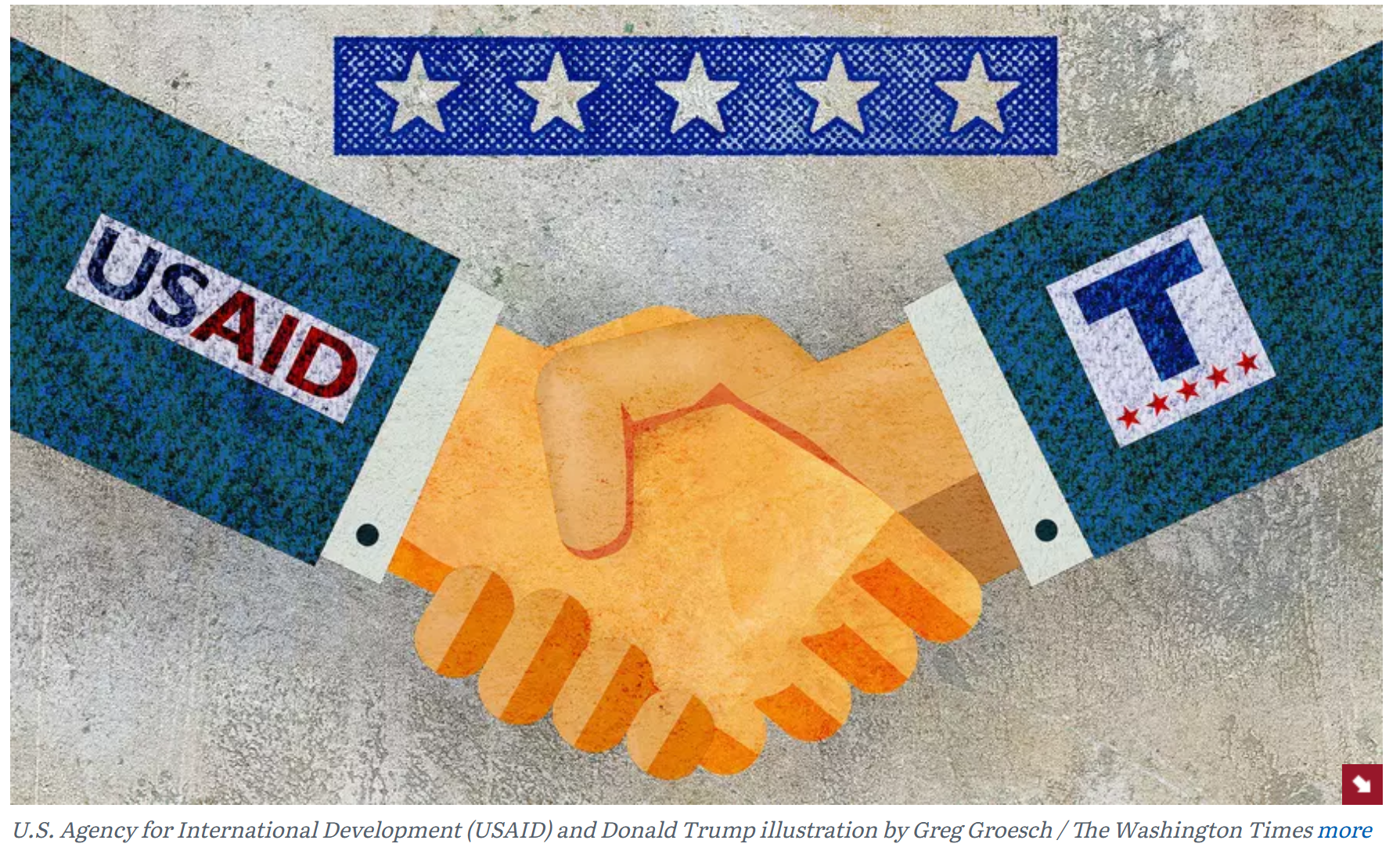
President-elect Donald Trump has a golden opportunity to revolutionize U.S. foreign aid and reassert American leadership in global development, argue Richard Crespin and Avnish Gungadurdoss in The Washington Times. By overhauling the U.S. Agency for International Development (USAID), Trump’s administration can transform how America delivers its $44 billion in foreign aid, boosting both effectiveness and influence in a world increasingly shaped by competition from China and Russia.
For decades, USAID’s outdated cost-plus-fixed-fee (CPFF) procurement model has hampered its ability to deliver meaningful results. This system, which reimburses implementers regardless of project success, has turned foreign aid into a bureaucratic quagmire that prioritizes paperwork over progress. The authors propose a bold alternative: adopting a fixed-price procurement model that ties payments to tangible outcomes. This shift, proven to increase results by up to 130%, would incentivize creativity, streamline administration, and diversify USAID’s partner base by lowering barriers for small businesses and local organizations.
Meanwhile, China is leveraging its Belt and Road Initiative to expand its influence across Africa, Asia, and Latin America through fast, seemingly no-strings-attached infrastructure investments. While these deals often come with hidden costs, they position Beijing as a go-to partner for developing nations. By embracing fixed-price procurement, the U.S. could offer more integrated, outcome-driven aid packages—combining American innovation with greater accountability and strategic alignment.
A prime example of success in results-driven aid is the Millennium Challenge Corporation (MCC), which ties grants to rigorous preconditions and measurable achievements. For over seven years, the MCC has institutionalized results-based financing, demonstrating how aid can be a powerful tool to align development goals with U.S. diplomatic and security interests.
By directing USAID to adopt these proven strategies, Trump can transform U.S. foreign aid into a force for global impact and restore America’s competitive edge on the world stage. With bold leadership, Crespin and Gungadurdoss conclude, this moment could mark the dawn of a smarter, more results-focused era in U.S. development policy.
